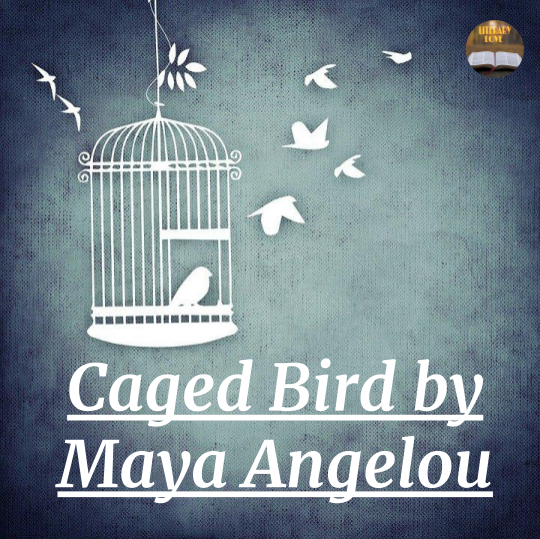Bihar Board Rainbow English Book Class 12 Solutions
Poem 3 'Now The Leaves Are Falling Fast by W. H. Auden'
Find the summary of the poem, here.
Text Book Questions and Answers
B. 1.1. Read the following sentences and write ‘T’ for true and ‘F’ for false statements -
(a) The leaves are falling very fast. - T
(b) The nurses are still there to take care of the flowers. - F
(c) All the prams are gone to the grave. - T
(d) 'Whispering neighbours’ disturb the ‘real delight’ of the ageing persons. - T
(e) Old persons feel lonely as they gradually become inactive. - T
(f) Death freezes the body and separates us from the crowd of the people. - T
(g) The promises of love are often deceptive. - T
(h) Starvation and suffering do not characterise human life. - T
(i) Travellers get one relief in the waterfall of the mountain. - T
(j) The prams go rolling on’ suggests the continuity of life. - F
B. 2. Complete the following sentences on the basis of what you have studied -
(a) Nurses to the graves are gone,And the prams go rolling one.
(b) Cold impossible ahead.
Lists the mountain’s lovely head
Whose white waterfall could bless
Travellers in their last distress.
B. 3. Answer the following questions briefly -
1. What does the poet mean when he says “Now the leaves are falling fast”?
Ans: The poet means that the leaves of the branches of the tree are falling and the trees are becoming leafless. It is also meant by a person who slowly goes to his death and at last in a grave. Like a tree, every human life has to be destroyed. None can be alive. Everyone is mortal.
2. What are the words in the second stanza that suggest death and the effect of death on the human body?
Ans: In the second stanza, the following are the words that suggest death and the effect of death on the human body - whispering neighbours, pluck and freeze.
3. How do we complete our last journey to the grave?
Ans: When a man is dead hundreds of men carry the dead body in a wooden coffin to the grave. This is our last journey.
4. What do “Trolls” do in the “leafless wood”?
Ans: Trolls run in search of their food in the leafless wood. They search for food to live.
5. Who are the ‘travellers’ and how will they be blessed?
Ans: Old persons are the travellers and they are blessed with their last distress which is death.
6. Which words in the first stanza suggest objects from Nature?
Ans: ‘Nurse’s flowers’ is the word in the first stanza that suggests objects from nature. It means ‘a nurse’.
7. Who are the ‘whispering neighbours’?
Ans: Agents or messengers of death are the whispering neighbours who come when a human body is dead.
8. How does human life become miserable?
Ans: Suffering from diseases and other problems, make human life miserable and unhappy.
9. In what way will the travellers be blessed?
Ans: Travellers will be blessed by those white waterfall which comes out from the mountain’s head. They will be blessed in their last distress.
C. 1. Long Answer Questions -
1. Falling of leaves suggests the process of death and human waste on a large scale. Explain with reference to the poem.
Ans: Falling of leaves suggests the process of death and human waste on a large scale. It means human life is just like a leaf that falls from a tree. Firstly, human life just starts as a baby and slowly it grows. After some time a human life suffers from a lot of diseases. Just like weather a human life also changes. When the weather changes the leaves fall. In the same way, human life also decreases and decays.
2. The poet is critical of the negative tendencies of human society. What are these tendencies? Give details.
Ans: The poet W.H. Auden wants to say that human life is dependent on human society. Without a human society, it can’t grow properly and also can’t do anything well. The poet is critical of the negative tendencies of human society. There are different kinds of caste or creed. The poet says that all human life is the same and belongs to the same society but the people create different kinds of caste and divide themselves. The poet says that it is not good.
3. Who are the ‘Trolls’ in the real world?
Ans: In this poem “The Leaves Are Falling Fast” is written by the poet W. H. Auden. According to his knowledge, those people are the ‘trolls’ in the real world who divide human life into different caste or creeds. The people who did crimes anywhere and give trouble to others always think wrong things. They don’t think about others and their problems. They hurt those people who are gentle. Such types of people are the ‘trolls’ in the real world.
4. Though the poet refers to ‘death’ several times, yet the poem is not a pessimistic one. Justify your answer.
Ans: The poet W. H. Auden refers to death several times in his poem, yet the poem is not a pessimistic one. In this poem, the poet tells that a tree becomes leafless in autumn. It looks like an old person who suffers from the illness. It seems that the poet has narrated the reality of life. Everything is bound to come to an end. But the circle of life and death will continue. Yet the poet is not a pessimistic one. In this poem, he tells that a tree becomes leafless in this season. It seems like an old person who suffers from an illness and can’t live for a long such as the tree also seemed that it would soon dry. As different types of seasons people also suffer from different kinds of disease.
C. 3. Composition -
Write a paragraph in about 100 words on each of the following -
(a) If winter comes, can spring be far behind?
Ans: Life is blessed with good and bad. Winter is always associated with a sad, dull, and gloomy atmosphere whereas spring is the sign of freshness, happiness, and enjoyment. Human beings should always be optimistic in their approach to life. They should understand the law of Nature. If there is pain, unhappiness, or tears today, how far away is the happiness from us? There are two sides to everything. If today there is sorrow, tomorrow it will be happiness. We should believe that a tune will come when there will be equality justice and love everywhere. So we should never lose our hope and always be optimistic.
(b) Let us make this world a better place to live in.
Ans: Life is beautiful and the world is a beautiful place to live in. But the fact is that we are trying to destroy this world for our selfish ends. God blessed us with a beautiful world. But human beings are destroying their beauty by bringing destruction to Nature. Man is giving so much pressure on this earth that an imbalance is created. They are not only unbalancing the earth but killing people, damaging their properties, and making life fearful. Today, a time has come that there is no fellow feeling among the people. They are scared of believing other people. They are trying to protect and save themselves from their enemies in great fear. So, we must make this world a better place to live in and enjoy its beauty.
D. Word Study -
D.1. Dictionary Use -
Ex. 1. Look up a dictionary and write two meanings of the following words - the one in which it is used in the lesson and the other which is more common -
|
Last |
Previous |
|
End or
final |
|
|
Lonely |
Alone |
|
Deserted |
|
|
Reprove |
Scold |
|
Chide |
|
|
Freeze |
Turn to
ice |
|
Harden |
|
|
Stiff |
Rigid |
|
Painful |
|
|
Attitude |
Point of
view |
|
Position |
|
|
Distress |
Pain |
|
Difficulty |
D. 2. Word-formation -
Read carefully the following sentence taken from the poem -
And the prams go rolling on.
In the above sentence, the word ‘pram’ is the shortened form of perambulators. Write down the
short forms of the following -
- examination — exam
- programme — prog
- department — dept.
- congratulation — congrats
- modem — mod
- advertisement — ad
D. 3. Word-meaning -
Ex. 1. Write the antonyms of the following words and use them in your sentences -
- falling — rising — The sun has started rising.
- fast — slow — Ram is very slow in his calculations.
- last— first — Tarun came first in class.
- freeze — melt — The ice got melt.
- separate — together — We must work together.
- responsive — unresponsive — He was unresponsive due to his bad health.
- false — true — Whatever she said is true.
- impossible — possible — Everything is possible in this world.
- bless — curse — Living without your family is like a curse.
E. Grammar -
Ex. 1. Read the following sentences carefully -
’And the prams go rolling on’.
The line suggests continuity of action. It can also be rewritten as: ‘And the prams go on rolling’.
Write five similar sentences with ‘go on using the following verbs -
(1) The students go on swimming.
(2) Healthy people go on walking.
(3) The students go on reading.
(4) The lazy go on sleeping.
(5) The children go on sketching.
Ex. 2. Read the following sentence carefully -
‘And the active hands must freeze.’
In the above line ‘must’ suggests ‘compulsion’ or necessity. ‘Must is different from ‘should’ and ‘ought to’ which suggest ‘suggestion’ or ‘obligation’. Fill in blanks with ‘must’, ‘should’, ‘ought to’ to complete the following sentences -
(1) We should follow a suitable time-table of study.
(2) The young must be considerate about the sentiments of their elders.
(3) Death does not mean the end of everything, life must go on.
(4) Why should I always follow fashion.?
(5) We, the Indians ought to show respect to the national flag.










0 Comments